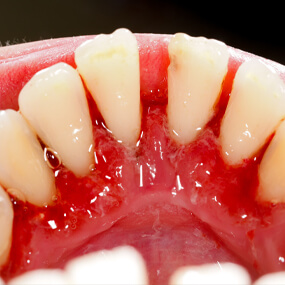How Acidic Foods Damage Your Teeth and How to Prevent It

Preventing cavities starts with brushing and flossing on a consistent basis, but those activities alone may not be enough to thwart tooth decay. The foods you eat and beverages you drink can make cavity prevention a much more difficult proposition. Consider, for instance, acidic foods, which do not get nearly the attention sugary foods do, can be even worse in terms of discoloration and decay.
How Acids Affect Your Mouth
Acids in the mouth wear down your tooth enamel and make it more difficult for that enamel to heal. As the enamel weakens, your teeth become more prone to cavities. This is the real danger with plaque and calculus. Those substances continue to release acids over time. But you can also damage your teeth directly with acidic foods, such as sour candies, and acidic beverages, such as diet sodas.
Your mouth is not defenseless against acid. An important role of your saliva is neutralizing acids and restoring your mouth to its proper pH balance. But when the onslaught of acids is intense or persistent, your mouth never has an opportunity to recover, and this problem can be exacerbated if you have oral health issues, such as gum disease or an accumulation of dental calculus.
The enamel of your teeth is the hard, outer protective layer. It protects the dentin, which is the layer underneath it. As the dentin becomes exposed, you can become sensitive to hot, cold, and sweet. As that erosion continues, you become susceptible to cavities and eventually infections and deep decay.
Harmful Acidic Foods and Beverages
Foods and drinks with high acidic levels are actually worse for your teeth than sugar. This is why diet sodas can actually be worse for your teeth than the regular versions. The most common acids in the average diet are carbonic, citric, and phosphoric. Items that contain high levels of these acids include:
- Plums
- Coffee
- Berries
- Alcohol
- Pickles
- Vinegar
- Tomatoes
- Dried fruit
- Fruit juices
- Citrus fruits
- Carbonated soft drinks
Limiting the Effect of Acidic Foods
Avoiding acids in your diet entirely is not practical, and you would not want to avoid all acids because they play a role in a well-balanced diet as well. You do, however, want to limit your intake, and you should avoid unnecessary acids. Reach for regular water rather than sparkling water. When you do eat acidic foods, pair them with alkaline foods, and take care to rinse your mouth after the meal.
Alkaline foods that can help to offset acidic foods include:
- Fish
- Milk
- Eggs
- Nuts
- Cheese
- Bananas
- Vegetables
- Whole grains
How to Protect Your Teeth
- Do not be quick to brush your teeth after an acidic meal or snack. It can actually make matters worse. Let your saliva do its job, and you can assist your saliva by rinsing vigorously with water. Another option is to chew sugar-free gum, which helps to promote saliva production.
- Approach acidic beverages as an occasional treat. When you do treat yourself, consider using a straw since doing so significantly reduces how much acid your teeth must endure.
- If you do not use a straw, just sip and swallow. Never swish it around your mouth.
- When you do enjoy a highly acidic meal, consider concluding it with a light course that counteracts those acids. Cheeses are an excellent option for a meal-ending snack.
- Your saliva is your body’s best defense against acid. Bolster your salivary glands by sipping water throughout the day. There is no hard rule for how much water you should drink. Just have water on hand, and sip it whenever you feel like it.
- Calcium as well as vitamin D and phosphorous are essential to protecting and revitalizing your enamel. Help your teeth by ensuring that these substances are well represented in your diet.
- Avoid brushing too often or too hard, which can damage your enamel as well. In fact, you should only brush your teeth twice a day—once after breakfast and again before bed. Use a soft-bristled brush and apply gentle strokes. There is never any need to scrub your teeth.
- Use a fluoride toothpaste with the American Dental Association Seal of Acceptance. Fluoride is important because it strengthens your tooth enamel. You may also consider a fluoride rinse.
- Floss daily. Plaque between your teeth and in other hard-to-reach places continues to release acids. In addition, plaque can harden into tartar in just 24 hours!
- See your dentist twice a year at least. You will get your teeth professionally cleaned as well as a fluoride rinse, and your dentist will examine your oral health. This is also an excellent opportunity to discuss your nutritional choices, oral hygiene routine, and so on with your dentist.
Sensitive Teeth? Be Proactive!
Sensitivity to foods and beverages that are hot, cold, or sweet is among the first indications that your enamel is eroding due to acids. If you experience this, schedule an appointment with your dentist right away. Do not wait for your next regular appointment. Your dentist cannot only help you relieve your sensitivity but may be able to reverse the dental erosion or will at least be able to treat it.
Protect Your Teeth From an Acidic Onslaught
Acids in the foods we eat are a fact of life and something we all need to be vigilant about in order to avoid dental erosion. Protecting yourself begins at home by regularly brushing and flossing your teeth. You also need to see your dentist on a regular basis, and if you are experiencing sensitive teeth, you should schedule an appointment with Jeffrey D. Clark, DDS, right away. Dr. Clark and his entire team at Scottsdale Cosmetic Dentistry Excellence are here to protect your oral health. Call us at 480 585 1853.




